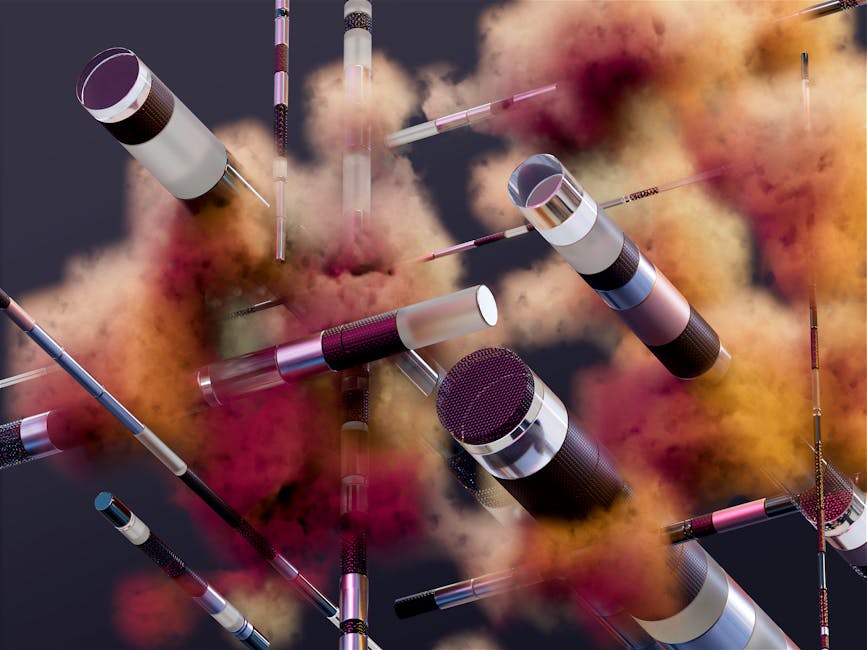AI Revolutionizes the Beauty and Cosmetics Industry: 2025 Market Analysis
The global beauty and cosmetics industry is undergoing a significant transformation in 2025, driven by the rapid integration of artificial intelligence (AI). This technological leap is impacting everything from product development and marketing to personalized customer experiences and supply chain optimization. While comprehensive market figures for 2025 are still being compiled and analyzed, preliminary data suggests exponential growth and a fundamental shift in industry dynamics. This report delves into the key areas where AI is making its mark, analyzing current trends and projecting future impacts.
AI-Powered Product Development and Customization
AI is revolutionizing product development within the beauty sector in 2025. Sophisticated algorithms analyze vast datasets of consumer preferences, skin types, and environmental factors to formulate personalized cosmetic products. This move towards hyper-personalization allows for the creation of bespoke cosmetics tailored to individual needs, leading to increased customer satisfaction and brand loyalty. The technology streamlines the traditional lengthy R&D processes by predicting product efficacy and consumer response before large-scale production.
Predictive Analytics and Formulation Optimization
AI-powered predictive analytics are enabling faster and more efficient product development cycles. Companies are leveraging machine learning to analyze large datasets of ingredient properties and consumer feedback to optimize product formulations. This allows for the creation of superior products with enhanced performance and reduced development costs. The speed and accuracy of this process allows companies to quickly respond to evolving consumer demands and market trends. Moreover, safety concerns are minimized as AI can predict potential adverse reactions early in development.
AI in Personalized Marketing and Customer Engagement
In 2025, AI is transforming how beauty brands interact with their customers. Targeted advertising campaigns leveraging AI-driven insights reach specific demographics with personalized messages and offers. AI-powered chatbots provide 24/7 customer service, answering product inquiries and resolving issues promptly. This enhanced customer experience builds brand trust and drives sales. Moreover, the use of AI in personalized recommendations based on individual preferences increases conversion rates and overall customer satisfaction.
Targeted Advertising and Enhanced Customer Service
AI’s role in targeted advertising is crucial for the beauty industry’s growth in 2025. By analyzing consumer data, AI algorithms can identify ideal customer segments and tailor advertising messages accordingly. This approach maximizes campaign effectiveness and reduces marketing waste. Simultaneously, AI-powered chatbots offer immediate, accurate answers to consumer queries and solve problems quickly and efficiently, improving overall customer engagement and boosting brand loyalty.
The Impact of AI on Supply Chain Management
AI is streamlining the complex supply chains within the beauty industry in 2025. AI-driven predictive models optimize inventory management, reducing waste and minimizing storage costs. AI also enhances logistics by predicting demand fluctuations and optimizing delivery routes. This efficiency leads to significant cost savings and improved overall operational effectiveness for beauty companies of all sizes. The potential for minimizing disruptions to the supply chain is substantial.
Inventory Optimization and Logistics Efficiency
AI’s contribution to efficient inventory management is significant. By analyzing sales data and predicting future demand, AI algorithms help companies maintain optimal stock levels. This minimizes waste from overstocking and avoids stockouts that negatively affect sales. Furthermore, AI-powered route optimization software improves logistics efficiency, reducing shipping costs and delivery times. This translates to substantial cost savings and greater customer satisfaction due to quicker delivery times.
AI-Driven Virtual Try-On and Augmented Reality Experiences
The rise of virtual try-on technologies and augmented reality (AR) applications powered by AI is dramatically changing the customer experience in 2025. Customers can now virtually try on makeup and hairstyles before purchasing, reducing the risk of buyer’s remorse. This immersive technology enhances the online shopping experience and encourages impulsive purchases. The shift towards virtual try-on tools is rapidly reshaping the beauty retail landscape.
Enhanced Online Shopping Experience and Increased Sales
Virtual try-on technology is transforming the online beauty shopping experience in 2025. Customers can experiment with different looks without leaving their homes. This fosters a more engaging and interactive shopping journey, potentially leading to higher conversion rates. Moreover, the realistic simulation provided by AI-powered AR tools reduces the risk of purchasing unsuitable products.
The Future of AI in the Beauty Industry: Challenges and Opportunities
While AI presents significant opportunities for growth, the beauty industry faces challenges in 2025. Data privacy and security concerns remain paramount. Ensuring ethical data collection and responsible AI development is crucial to maintain consumer trust. Furthermore, investing in the necessary infrastructure and talent to implement AI solutions successfully requires substantial financial commitments.
Key Takeaways and Future Projections
- AI-driven personalization is transforming the beauty industry in 2025.
- Predictive analytics and AI-powered tools are optimizing product development and marketing strategies.
- Virtual try-on technology is revolutionizing the online shopping experience.
- Concerns about data privacy and security are growing.
- Investment in AI infrastructure and talent is essential for future growth.
The integration of AI in the beauty and cosmetics industry in 2025 is still in its early stages. However, the current trends indicate a transformative period characterized by hyper-personalization, increased efficiency, and innovative customer experiences. While challenges related to data privacy, ethical considerations, and investment costs need to be addressed, the long-term implications for the beauty industry suggest a future where AI plays a pivotal role in shaping product development, marketing, and the overall consumer experience. Further research and data analysis will be critical to fully understanding the evolving landscape of the beauty industry within this rapidly changing technological environment.

